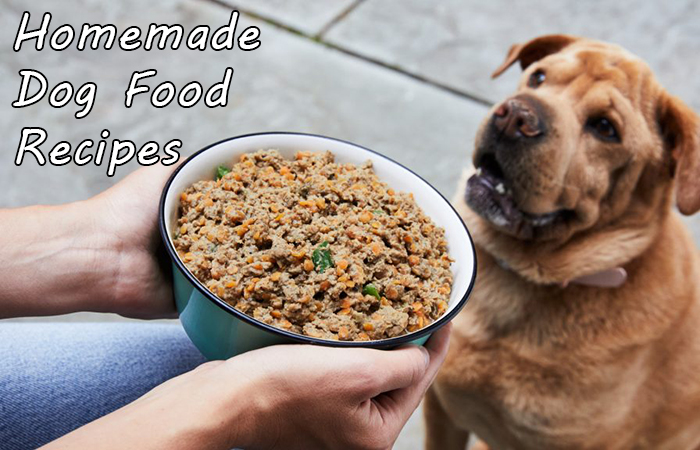
As pet owners, we share an unbreakable bond with our canine companions. Their wagging tails, endless loyalty, and unwavering affection make them cherished members of our families. Just as we strive to provide the best for our human loved ones, offering nutritionally balanced meals is equally crucial for the well-being of our furry friends. Homemade dog food recipes have gained popularity as a way to ensure that our dogs receive the best quality ingredients and tailored nutrition, all while adding a touch of love to their meals.
Commercial dog food options come in a wide range, offering convenience and variety. However, many pet owners are turning to homemade dog food recipes for several compelling reasons:
Quality Control: When you prepare your dog's meals at home, you have complete control over the ingredients. This means you can choose the highest quality proteins, carbohydrates, and vegetables to ensure your dog receives optimal nutrition.
Tailored Nutrition: Different dogs have varying nutritional requirements based on factors such as age, size, breed, and activity level. Homemade meals allow you to customize your dog's diet to meet their specific needs, promoting better health and vitality.
Avoiding Additives and Preservatives: Some commercial dog foods may contain additives, preservatives, and artificial colors that can have negative effects on a dog's health. Homemade recipes allow you to avoid these unnecessary ingredients.
Addressing Dietary Restrictions and Allergies: If your dog has specific dietary restrictions or allergies, homemade food gives you the ability to carefully select ingredients that won't trigger adverse reactions.
Bonding and Love: Preparing meals for your dog can be an act of love and a way to strengthen the bond between you. Just as sharing a meal with humans fosters connection, the same holds true for our canine companions.
Before diving into homemade dog food recipes, it's essential to understand the key nutritional components that dogs require:
Protein: Dogs are primarily carnivorous animals, so protein is a vital component of their diet. Good sources include lean meats like chicken, turkey, beef, and fish.
Carbohydrates: Carbohydrates provide energy and fiber. Opt for whole grains like brown rice, quinoa, and sweet potatoes.
Vegetables: Vegetables offer essential vitamins, minerals, and antioxidants. Include options like carrots, spinach, peas, and pumpkin.
Fats: Healthy fats are important for maintaining a dog's coat, skin, and overall health. Use sources such as olive oil or fish oil.
Calcium: To support strong bones and teeth, incorporate calcium sources like dairy products or supplements.
Portion Control: Consult your veterinarian to determine the appropriate portion size for your dog based on their size, age, and activity level.
Here are a few simple and nutritious homemade dog food recipes to get you started:
Ingredients:
Instructions:
Ingredients:
Instructions:
Ingredients:
Instructions:
While homemade dog food recipes can be a wonderful way to show your love and provide tailored nutrition, it's essential to consult your veterinarian before making any significant changes to your dog's diet. A veterinarian can help you ensure that the recipes meet your dog's nutritional requirements and address any specific health considerations.
In conclusion, preparing homemade dog food is a rewarding endeavor that allows you to prioritize your dog's health and well-being. By using high-quality ingredients and creating well-balanced recipes, you can nourish your four-legged friend while strengthening the special bond you share. Remember, a healthy and happy dog is a reflection of the care and affection you provide through every meal you lovingly prepare.
Established in 2013, FamilyNeeds.net is connected to your lifestyle and everyday life. Publish reviews of your life, style, fashion and essentials.